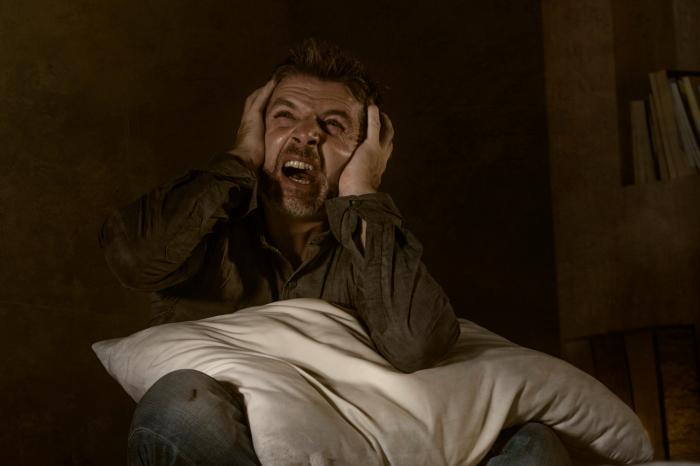How to Cope with Schizophrenia?
FTC Statement: Reviewers are frequently provided by the publisher/production company with a copy of the material being reviewed.The opinions published are solely those of the respective reviewers and may not reflect the opinions of CriticalBlast.com or its management.
As an Amazon Associate, we earn from qualifying purchases. (This is a legal requirement, as apparently some sites advertise for Amazon for free. Yes, that's sarcasm.)

Schizophrenia is a mental illness that influences how a person thinks, feels, and behaves. It can be a very challenging illness to cope with, both for the person who has it and for their loved ones. But there is schizophrenia treatment available to cope with it and lead a productive life.
In this blog post, we will talk about some of the best ways to cope with schizophrenia.
What Is Schizophrenia?
Schizophrenia is a mental disorder that affects a person's ability to think, manage emotions, make decisions, and relate to others. People with schizophrenia may withdraw from reality, act out in odd or confusing ways, or seem detached and emotionless. The condition is chronic and can be debilitating, but there are treatments available that can help people manage their symptoms and live productive lives, and keep in mind that in some cases, it can be a lifelong treatment.
Schizophrenia is not caused by a single event or experience but is thought to result from a combination of genetic and environmental factors. If you or someone you know is experiencing symptoms of schizophrenia, please seek professional help.
Misconceptions About Schizophrenia
For many of us, when we think of 'schizophrenia,' people with an unkempt appearance come to mind; someone struggling to maintain control over their actions and whose behavior varies greatly and suddenly or appears as if under demonic possession.
The general public often associates schizophrenia with a split personality or multiple personality disorder when these two conditions are completely different.
Other common misconceptions about schizophrenia include that people with the condition should be locked up.
What Are the Symptoms of Schizophrenia?
Symptoms of schizophrenia can vary significantly from one person to the next, but they can generally be divided into three categories:
- Positive
- Negative
- Cognitive
Positive
Positive symptoms involve an excess or distortion of normal behavior, such as seeing things that aren't there or hearing voices.
Negative
Negative symptoms involve a loss or diminishment of normal behavior, such as social withdrawal or loss of motivation.
Cognitive
Cognitive symptoms such as trouble focusing or making decisions affect a person's thinking abilities.
Although schizophrenia can be a lifelong condition, it is often treatable with medication and therapy. With proper treatment, people with schizophrenia can live fulfilling and productive lives.
How Do People with Schizophrenia Feel and Think?
 Schizophrenia is a mental health condition that influences how a person thinks, feels, and behaves. Schizophrenia can make it seem like a person has lost touch with reality.
Schizophrenia is a mental health condition that influences how a person thinks, feels, and behaves. Schizophrenia can make it seem like a person has lost touch with reality.
- They may see or hear things that others cannot see or hear.
- They may believe things that are not true.
- People with schizophrenia may also have trouble thinking, managing emotions, making decisions, and socializing.
- People with schizophrenia may also exhibit changes in behavior, such as sleeping for long periods or inappropriate behavior.
- In addition, people with schizophrenia are at risk for suicide and self-harm.
The symptoms of schizophrenia can vary from mild to severe, making it hard for a person to function in society. It is possible to manage symptoms with medication and therapy. With treatment, people with schizophrenia can live productive and fulfilling lives.
What Treatments Are Available for Schizophrenia?
Schizophrenia treatment can be done in the following ways:
Medication
Medication can help reduce the symptoms of psychosis, such as delusions and hallucinations. The most common medication used to treat schizophrenia is an antipsychotic.
The antipsychotic medication works by reducing the activity of dopamine, a neurotransmitter that is thought to be involved in the development of psychosis. Many different types of antipsychotic medications are available, and it is important to work with a psychiatrist to find the one that is right for you.
Psychotherapy
Psychotherapy can also be an effective treatment for schizophrenia. Psychotherapy can help people to manage their symptoms and improve their quality of life.
Types of psychotherapy that are effective in treating schizophrenia include:
Cognitive Behavioral Therapy (CBT)
CBT helps people change their thoughts and behavior regarding their psychotic symptoms.
Family-Focused Therapy
Family therapy helps to involve the family members of people with schizophrenia in their treatment.
Relaxation Techniques
Relaxation techniques, such as yoga or meditation, can help people to reduce stress and anxiety.
Psychoeducation
Psychoeducation is a type of therapy that provides information about schizophrenia to people with the condition and their families.
Hospitalization
In some cases, people with schizophrenia may need to be hospitalized. This is usually done on a voluntary basis, but there are times when involuntary hospitalization may be necessary to ensure basic hygiene, proper nutrition, and to ensure safety.
Hospitalization can provide a safe and structured environment where people can receive the necessary treatment. It can also help to protect people from harming themselves or others.
Support Groups
Support groups can provide people with schizophrenia with valuable information and social support. There are many different kinds of support groups available, including online groups, in-person groups, and peer-led groups.
Some support groups focus on providing education about schizophrenia, while others focus on providing emotional support. It doesn't matter what type of support group you choose; it is important to find one that you feel comfortable with and that meets your needs.
Tips for Living with Schizophrenia
Here are some tips for living with schizophrenia:
- See a doctor or therapist
- Join a support group
- Take medication as prescribed
- Establish routines and stick to them
- Avoid stress and triggers
- Get plenty of sleep and exercise
- Eat a healthy diet
- Don't abuse drugs or alcohol
- Take care of yourself
- Seek help when you need it
If you or someone you know is living with schizophrenia, remember there is hope. People with schizophrenia can lead happy and productive lives with treatment and support.
How Can Family and Friends Help Someone Who Has Schizophrenia?
If you have a family member or friend with schizophrenia, there are many ways you can help. Here are some things you can do:
Learn about the condition
The more information you have about schizophrenia, the better you will be able to understand and support your loved one.
Be there for them
Offer emotional support and understanding. Let them know that you are always there for them and accept them.
Encourage them to seek treatment
Please help them to make appointments with doctors and therapists and encourage them to stick to their treatment plan.
Encourage healthy habits
Please help them to establish routines around sleep, exercise, and diet. These healthy habits can help to improve symptoms and overall well-being.
Provide practical support
Offer to help with day-to-day tasks, such as shopping or cleaning. This can help to reduce stress and make it easier for them to focus on treatment.
Conclusion
Schizophrenia is a mental illness like other mental health conditions; if you or someone you know is living with schizophrenia, it is important to seek treatment. Many different types of treatment are available, and with the proper support, people with schizophrenia can lead happy and productive lives.
If you have a family member or friend with schizophrenia, there are many ways you can help. Learn about the condition, offer emotional support, and encourage healthy habits. These things can make a huge difference in the life of someone with schizophrenia.


